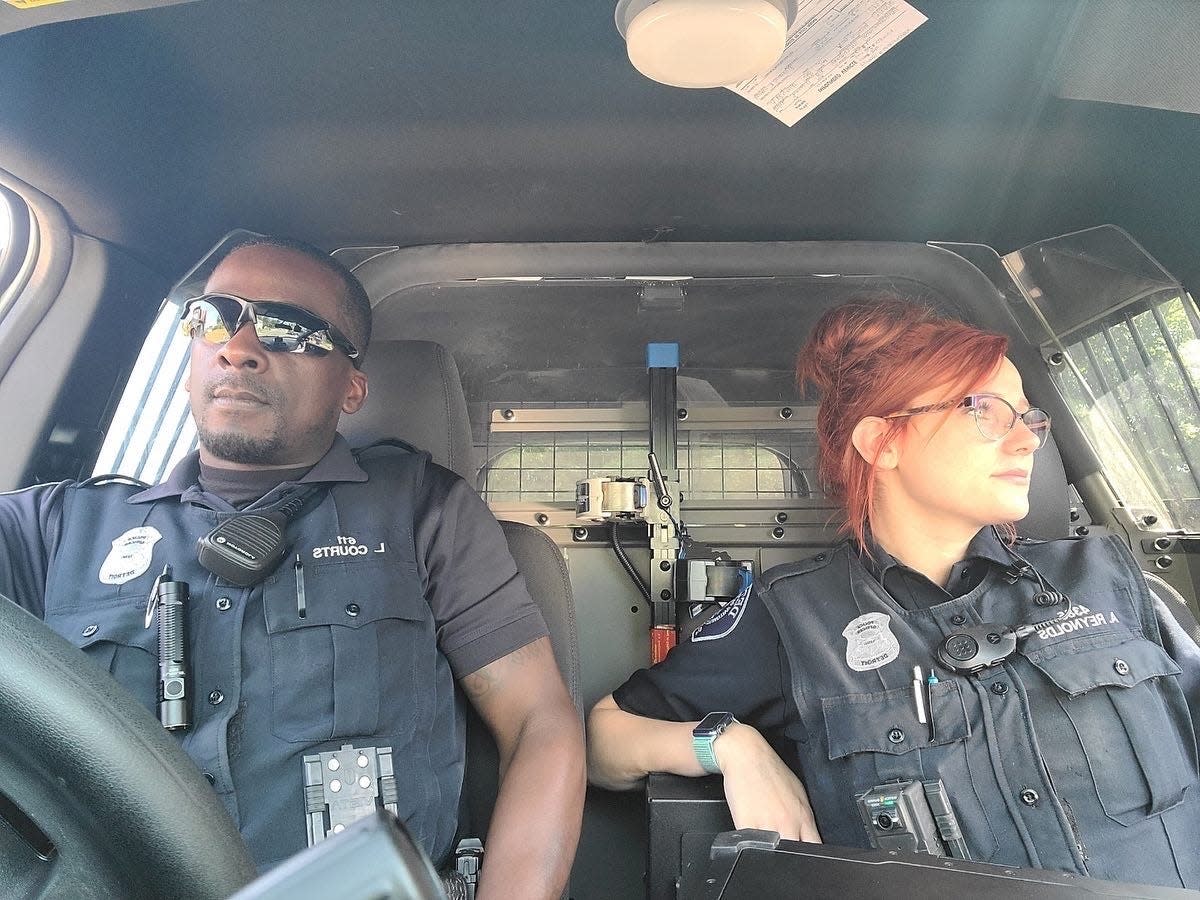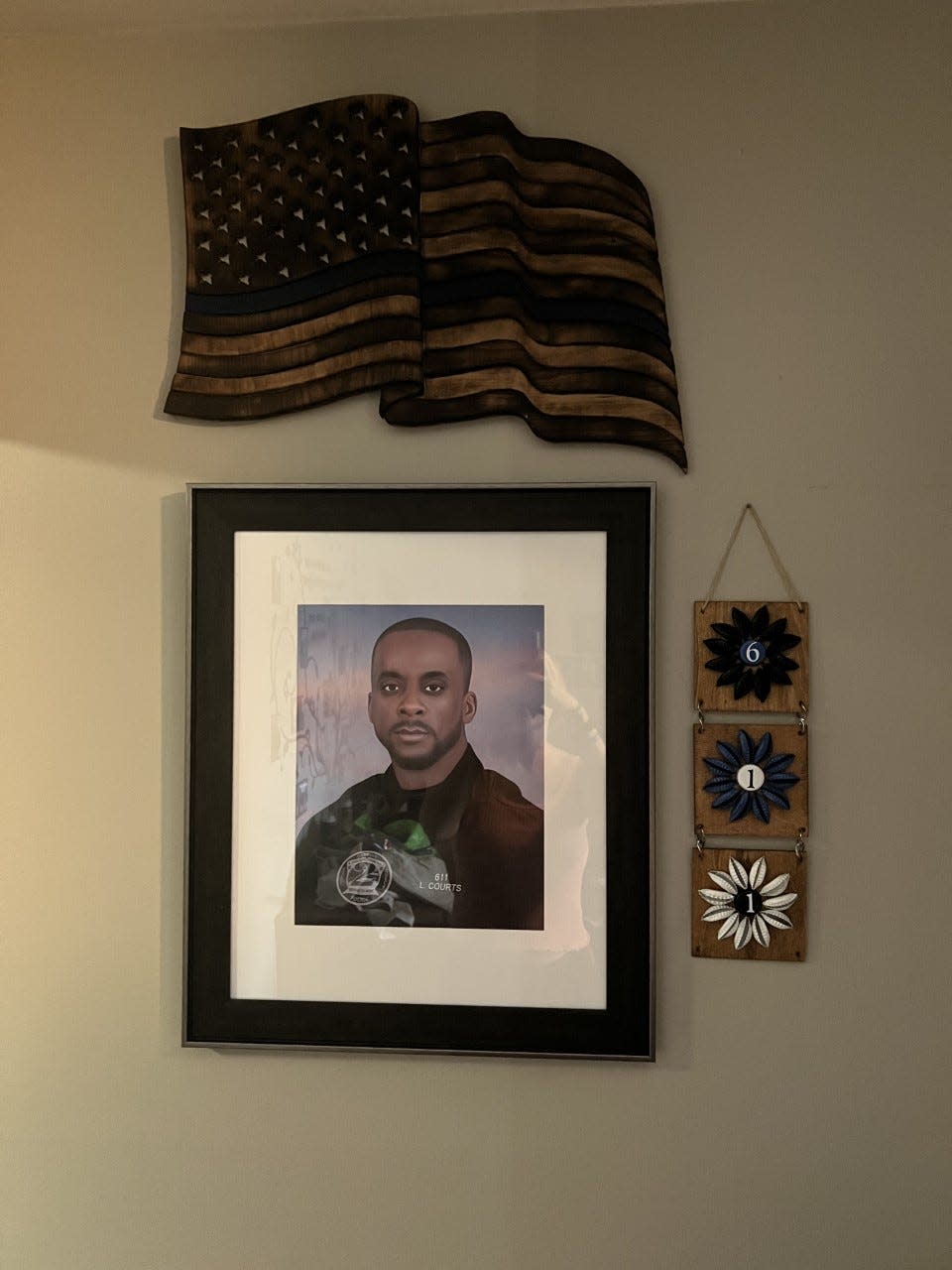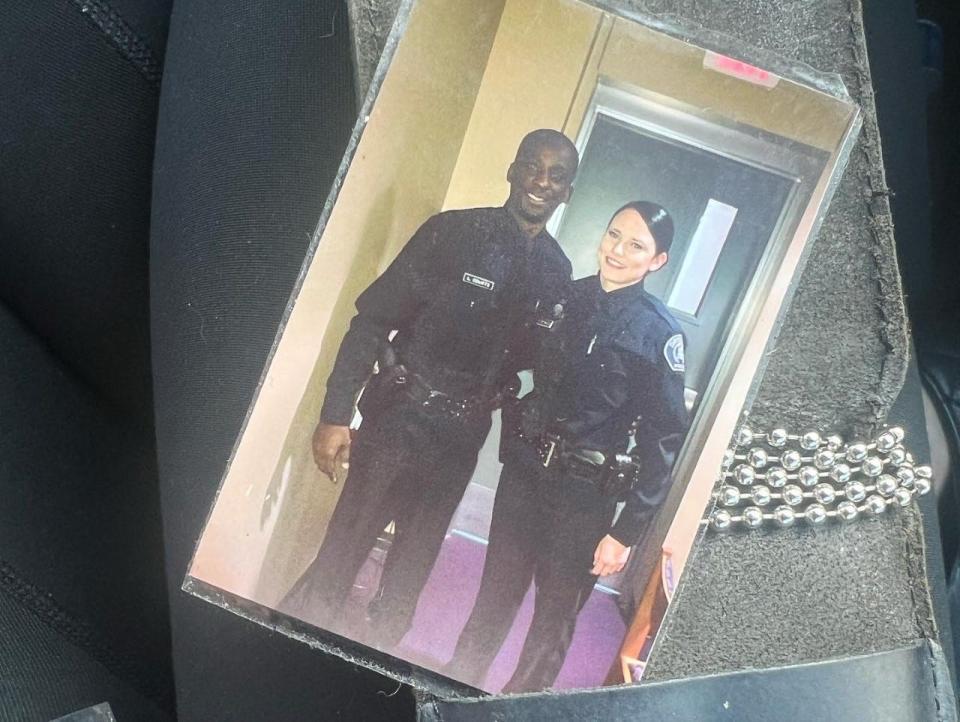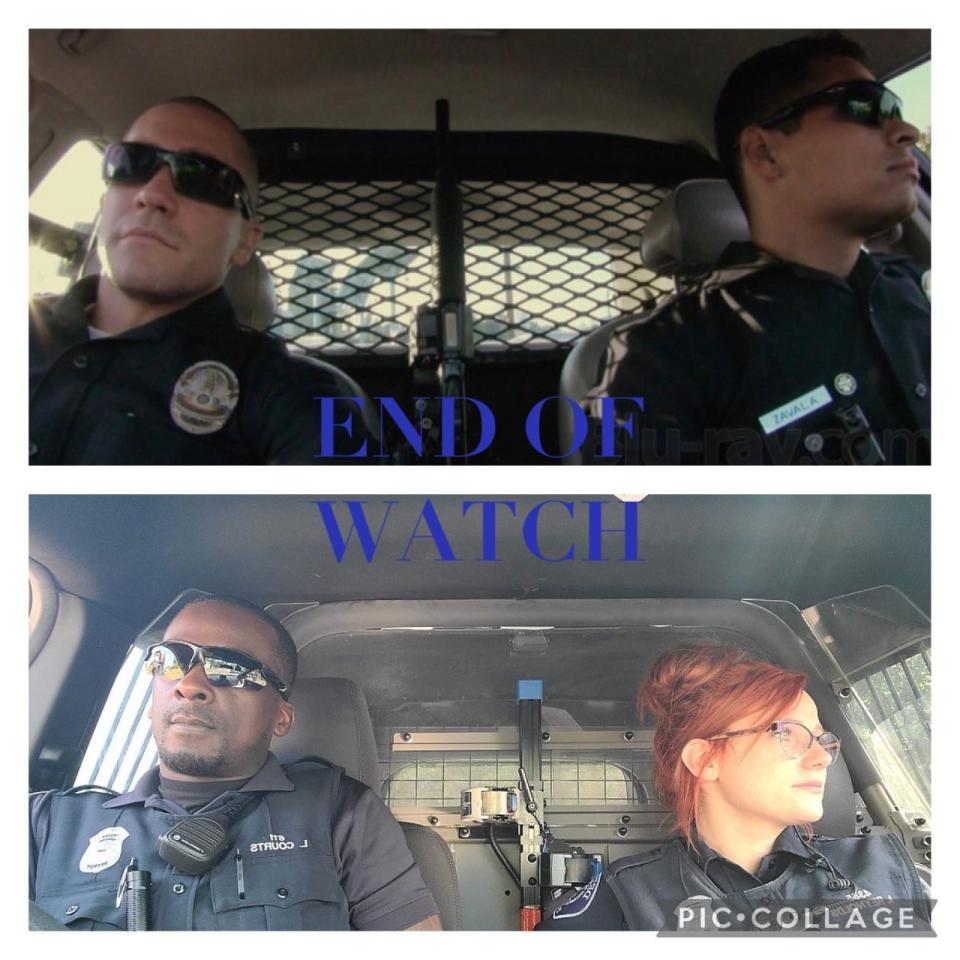Shelton grad, Detroit police officer, hero for protecting partner in fatal shooting

Her partner shot in the neck during an ambush, Detroit Police Officer Amanda Hudgens pressed her hand against the wound in hopes of stopping the bleeding.
Loren Courts, 40, was still breathing. He was somebody she called her best friend, her brother, and who her daughters called uncle.
“I can see there's two other officers running up to the front to come and help me,” Hudgens said. “And I see them stop and when I see them stop, I turn around because I knew that meant somebody's behind me.”
She saw the man who had shot Courts. She could see his gun, a Draco, a semi-automatic pistol that resembles an AK-47.
In that moment on July 6, the 2011 Shelton High School graduate who quit nursing school at Olympic College to follow her dream of being a police officer in the big city made a decision.
“I'm not leaving him,” Hudgens, 30, said in a telephone interview with the Kitsap Sun. “I'm not running. He's still breathing in my hands and I'm still holding pressure.”
Instead of defending herself, or taking cover, she used her body to shield Courts.
“I just turned my body,” Hudgens said, knowing the gunman could fire again. “I knew my vest would at least cover, protect his major organs.”
Defenseless, she ducked her head.
“And then I just, honestly, I put all of my trust in my life in those two other officers’ hands.”
The officers would shoot and kill the gunman, Ehmani Davis, 19.

“And as the last shot was fired, I felt Loren take his last breath in my hands.”
Detroit Police Chief James White said Davis had planned the ambush as a way to have police kill him. Hudgens said they were responding to a shots-fired call, and the bullet came through their patrol car while Courts was driving.
White praised Hudgens, who he said was preparing to die to save her partner.
"She's a hero," White said of Hudgens, according to a story in the Detroit Free Press. "She’s beyond a hero."
It’s difficult for Hudgens to hear herself called a hero. She repeats a phrase passed on by her therapist.
“You are a hero, you are not God,” Hudgens said. “I did everything I could for Loren, in my power to save Loren. But the only person that could bring Loren back is God.”
Hudgens said she and Courts were realistic. It is a dangerous job. Their assignment wasn’t to respond to 911 calls but to respond to shootings and carjackings. Hudgens had been in a shooting in February where she shot but did not kill a man ramming her patrol car.
They kept numbers of each other’s families saved in their phones for just such an occasion. As an ambulance took Courts to the hospital, Hudgens called his father, a retired Detroit police officer.
“Loren's been shot.”

'Just a small-town girl'
Hudgens’ parents said growing up, she was the kind of person who set her mind to something and did it, but her mother never thought she would become a police officer.
“She did always say she was going to move out of Shelton, but no, I never thought she was going to be in a police department where she puts her life on the line every day,” Deanna Johnson said.
She said her heart is divided in half when she thinks about how her daughter is called a hero.
“Part of me is very proud of her for staying strong and doing everything she could to try to save her partner Officer Courts,” Deanna Johnson wrote in a text message. “My other part is sad to think I could have lost my daughter with him.”
It was by chance that Hudgens – who used the last name Smith when in high school –ended up in Detroit. She was a teen mom who initially had gone along with her mother’s idea of becoming a nurse. She fell in love with the city and its people and fell in love with the job after observing officers during a ride-along.
It’s like the Journey song, she said, “Don’t stop believin’,” which starts with the line, “Just a small-town girl, living in a lonely world. She took the midnight train going anywhere.”
The city of Detroit has 630,000 people with 4.4 million in the metro area. Shelton, an 80-mile drive from Seattle, has a population of 11,000.
“I wanted to go to a big city,” Hudgens said. “I wanted to do something different. Being from Shelton, a lot of people say, do something different, so I decided to do something big.”
There was something else that motivated her, setting an example for her daughters to follow their dreams.
“Don't be scared to do something different and out of your element,” Hudgens said. “Don't stay somewhere because it's comfortable.”
Fred Johnson, Hudgens' stepfather, described her as a go-getter, a fierce competitor in high school sports, somebody who strived to be the best. He recalled taking her to a basketball camp at Centralia College, where she ended up tangling with college-level players on the court. She sent him a photo of herself with a black eye.
“Nothing bothered her,” Fred Johnson said. “She didn’t care who she was going up against. She just went and did the best she could. That’s the way we brought her up.”

Friendship started at academy
She met Courts on the first day of the academy in 2017. She was probably shaking. It was a military-style academy.
“So everybody’s in your face and yelling,” she said. “I'm from a small town. They don't ever do that to you there.”
He walked up to her and said: “Hey, I'm Loren. Um, you look very nervous.”
The two would become part of a group of officers at the academy who became close, bonding over study sessions.
“Just don't quit,” she recalls Courts telling her. “You got this, you got this.”
They both wanted to be the best and ended up competing with each other in tests and physical drills and developed a big brother-little sister relationship.
After graduation, they dispersed to their assignments and while working the streets, she discovered she had a knack for getting herself quickly to shooting scenes.
“That’s my bread and butter.”
When Courts told her there was an opening at his precinct, she transferred in 2019 and they became partners.
She described Courts as a positive person who had an interest in photography. They both liked the 2012 action movie “End of Watch,” about the friendship between two Los Angeles police officers.

A photo of the two sitting in their scout car was taken by Courts as a homage to the movie.
“We were mimicking that picture,” she said.
Following the shooting Hudgens transferred to the department's homicide division for about a month but began suffering nightmares. Now a corporal, she teaches at the academy but has gone on a patrol a couple of times.
She has no plans to leave law enforcement.
“It's a calling,” she said. “And Loren would kick my butt if I quit.”
This article originally appeared on Kitsap Sun: Detroit police officer hero for protecting partner in shooting

